Introduction
The Allure of Korean BBQ Sauce Recipe
Korean BBQ sauce recipe is the secret behind the irresistible flavor of Korean BBQ. This sauce has gained immense popularity globally, thanks to its unique blend of savory, sweet, and spicy flavors. Blending soy sauce, brown sugar, garlic, and additional elements results in a flavor profile that is deep and multifaceted, enhancing any culinary creation.
A Brief History of Korean BBQ
The tradition of Korean BBQ, known as gogi-gui, dates back centuries and holds a special place in Korean culture. It’s not just about the food; it’s a social experience where friends and family gather around the grill. Over time, the recipes for Korean BBQ sauce have evolved, incorporating diverse ingredients to create the perfect balance of flavors. Explore the historical importance of Korean BBQ by clicking here.
Purpose and Structure
This article’s goal is to offer an all-inclusive manual on crafting and applying Korean BBQ sauce. Whether you’re just starting out in the kitchen or are a seasoned culinary expert, you’ll uncover useful insights and advice. The article is structured to take you through the basic recipe, advanced techniques, maintenance tips, dietary adaptations, and frequently asked questions. Immerse yourself in the realm of Korean cuisine and elevate your dishes with this delectable sauce. For advanced cooking techniques and more recipes, check out Korean Bapsang.
Korean BBQ sauce transcends being merely a condiment; it is a fundamental aspect of Korean culinary heritage. By mastering this sauce, you’ll be able to bring the authentic taste of Korea to your home, impressing your guests and family with every meal. Embrace the rich flavors and enjoy the journey of creating and perfecting your own Korean BBQ dishes.
The Basic Recipe
Print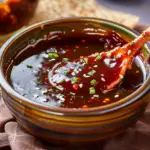
Authentic Korean BBQ Sauce Recipe
- Total Time: 20 minutes
- Yield: 2 cups 1x
- Diet: Vegetarian
Description
This authentic Korean BBQ sauce is perfect for marinating and grilling meats, adding a delightful mix of savory, sweet, and spicy flavors to your dishes.
Ingredients
- 1 cup soy sauce
- ¾ cup dark brown sugar
- 2 tablespoons minced garlic
- 1 tablespoon rice wine vinegar
- 1 tablespoon chile-garlic sauce (such as Sriracha®) (optional)
- 1 ½ teaspoons ground black pepper
- 1 teaspoon grated fresh ginger
- 1 teaspoon Asian (toasted) sesame oil
- 1 tablespoon cornstarch
- 1 tablespoon water
Instructions
- In a medium saucepan, combine soy sauce, dark brown sugar, minced garlic, rice wine vinegar, chile-garlic sauce (if using), ground black pepper, grated ginger, and sesame oil.
- Bring the mixture to a simmer over medium heat, stirring occasionally until the sugar dissolves and flavors meld together.
- In a small bowl, mix the cornstarch with water to create a slurry.
- Slowly add the cornstarch slurry to the saucepan, stirring constantly until the sauce thickens to your desired consistency.
- Remove from heat and let it cool before using it as a marinade or dipping sauce.
Notes
- Adjust the sweetness or spiciness to taste by modifying the amount of sugar or chile-garlic sauce.
- Store the sauce in an airtight container in the refrigerator for up to two weeks.
- Prep Time: 10 minutes
- Cook Time: 10 minutes
- Category: Sauces
- Method: Cooking
- Cuisine: Korean
Nutrition
- Serving Size: 1 tablespoon
- Calories: 25
- Sugar: 4g
- Sodium: 450mg
- Fat: 1g
- Saturated Fat: 0g
- Unsaturated Fat: 0.5g
- Trans Fat: 0g
- Carbohydrates: 5g
- Fiber: 0g
- Protein: 1g
- Cholesterol: 0mg
Keywords: Korean BBQ Sauce
Explore more about Korean cuisine and healthy recipes at Cooking Light. This Korean BBQ sauce will transform your meals, bringing a taste of Korea right to your table.
STEPS
Step 1
Gather all ingredients.
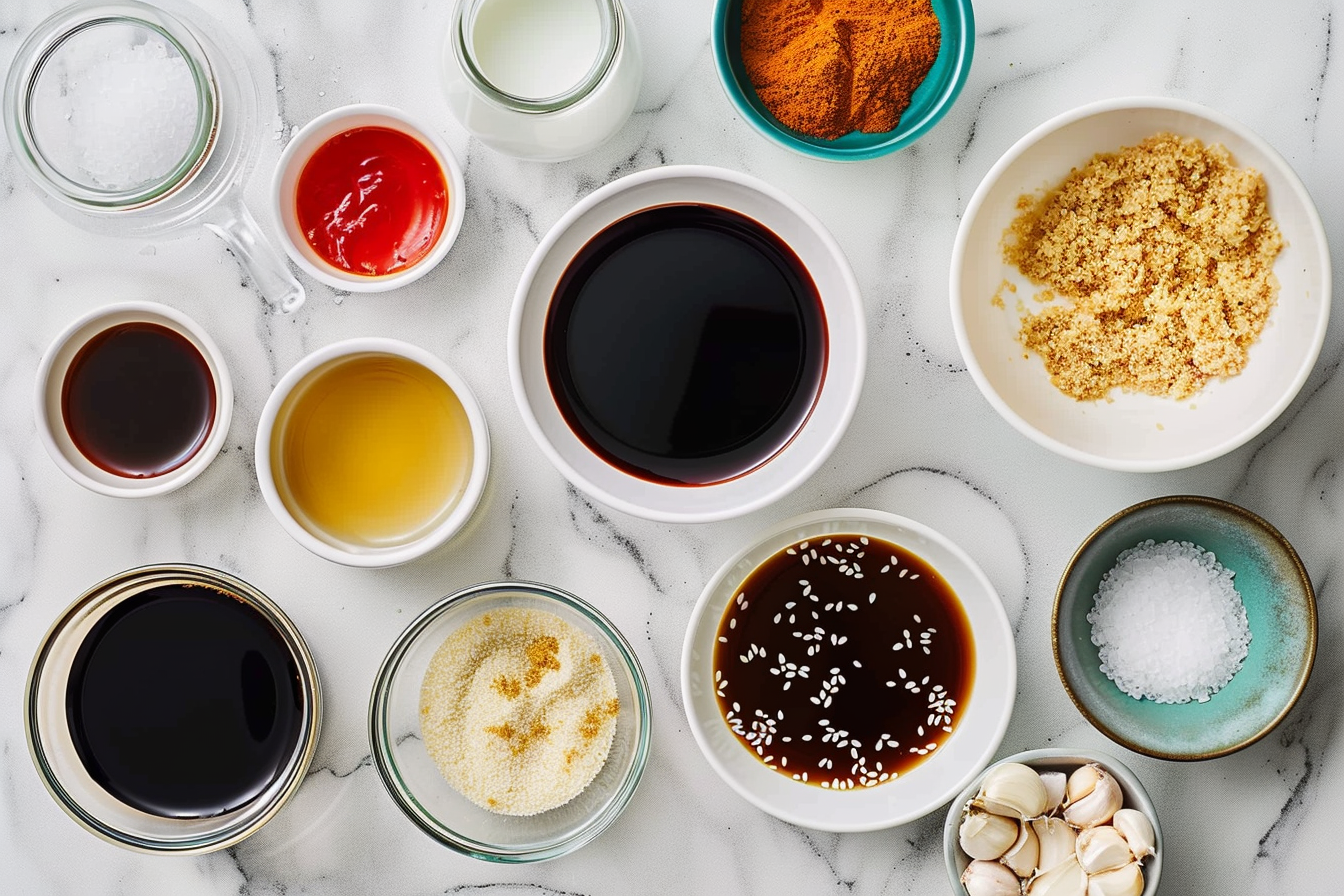
Step 2
Combine soy sauce, brown sugar, garlic, rice wine vinegar, chile-garlic sauce, pepper, ginger, and sesame oil in a saucepan and heat until it reaches a boil.
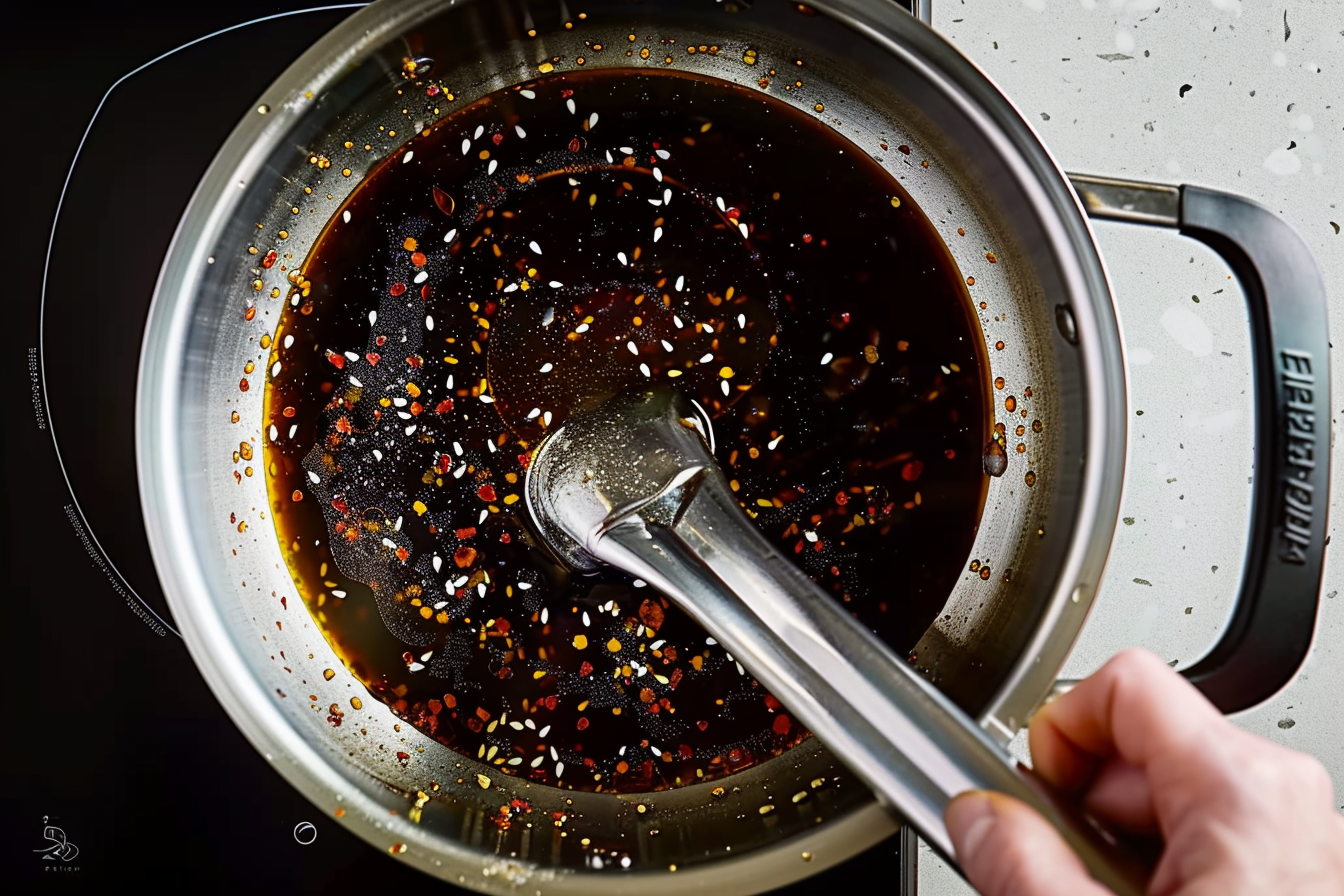
Step 3
In a small bowl, blend cornstarch with water until it’s fully dissolved. Then, stir this mixture into the boiling soy sauce concoction.
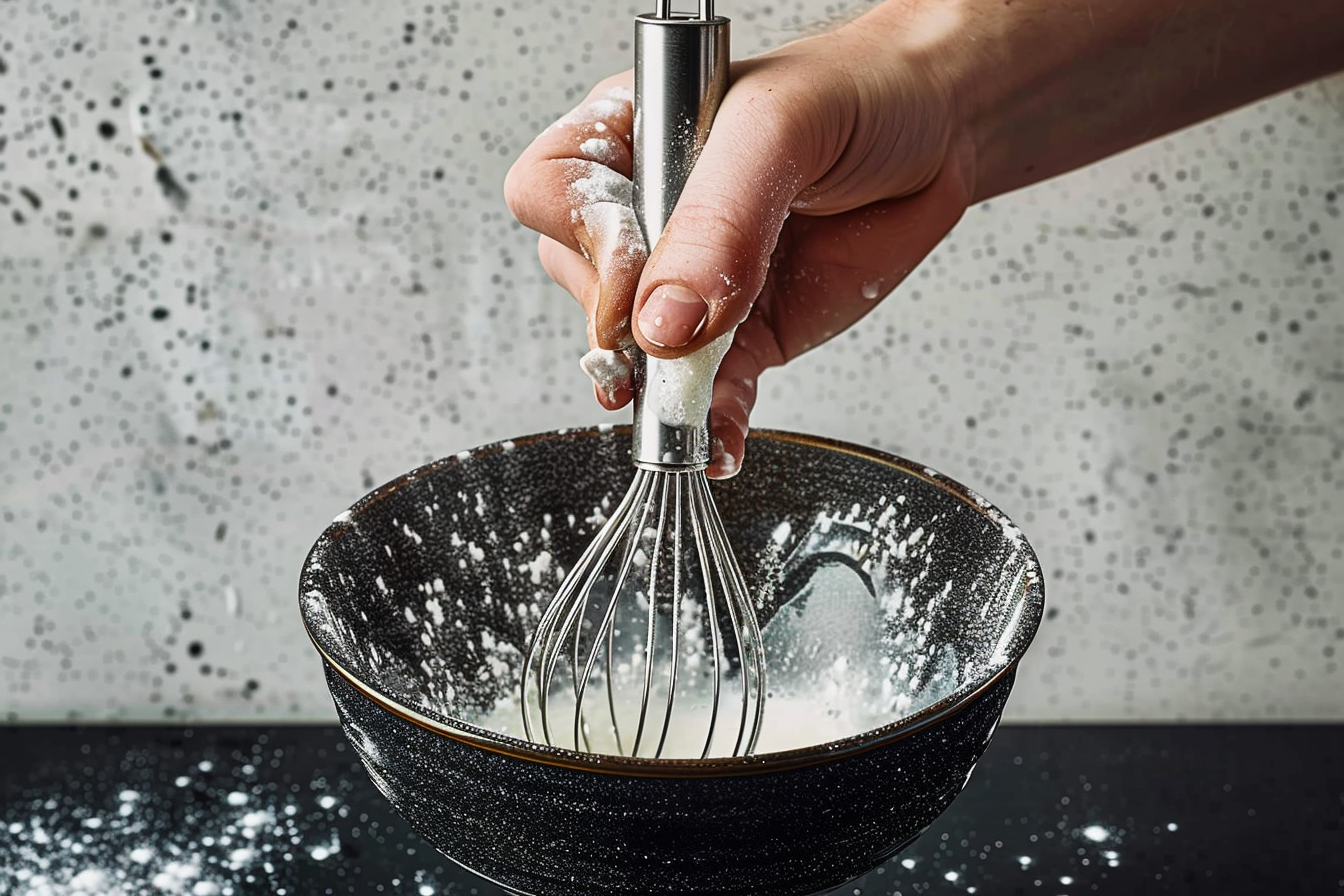
Step 4
Lower the heat to medium-low and let the sauce simmer until it thickens, about 3 to 5 minutes.
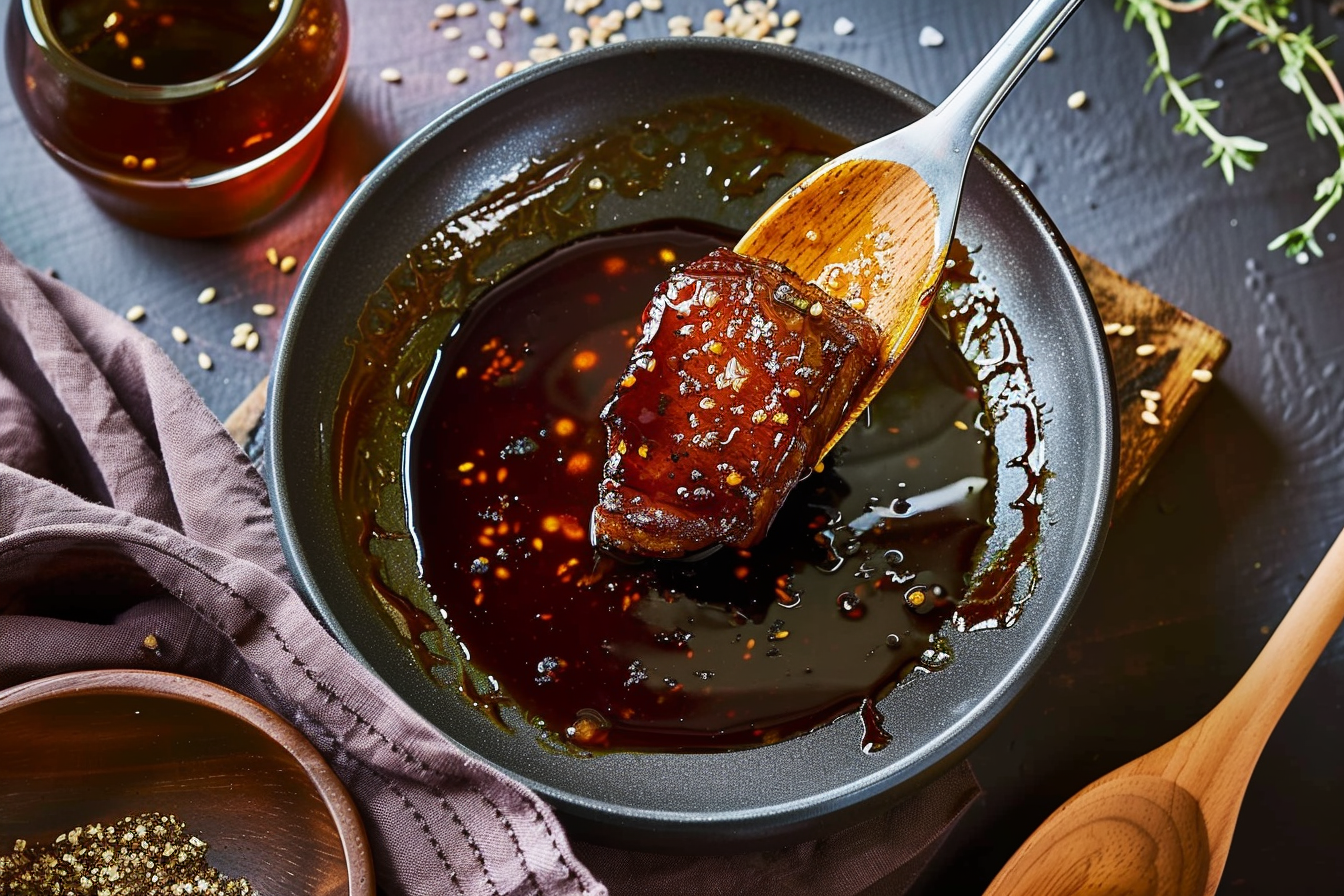
Advanced Techniques and Variations
Flavor Enhancements
To enhance the flavor of your Korean BBQ sauce recipe, consider adding additional ingredients. For a deeper, more complex taste, incorporate pear puree, apple juice, or Korean pear. These ingredients not only add sweetness but also help tenderize the meat. Another excellent addition is fermented soybean paste (Doenjang), which provides a rich umami flavor. Experimenting with these ingredients will elevate your Korean BBQ sauce to new heights.
Marinating Techniques
Proper marinating techniques are crucial for achieving the best results. When marinating meats, ensure they are evenly coated with the Korean BBQ sauce. For beef, marinate for at least 4 hours, but overnight is ideal for deeper flavor penetration. Chicken and pork can be marinated for 2 to 4 hours. Always turn the meat occasionally to ensure even coverage and absorption. Using a resealable plastic bag is an effective method to marinate evenly.
Cooking Tips
Cooking with Korean BBQ sauce recipe requires some finesse to maximize its flavors without burning. To avoid the sugars in the sauce from charring too rapidly, grill the meat at a medium temperature.
For a perfect caramelization, ensure the grill or pan is preheated. If you’re cooking indoors, a grill pan or broiler works well to replicate the smoky flavor of an outdoor grill.
By applying these advanced techniques and variations, your Korean BBQ sauce will deliver exceptional results every time. Embrace the opportunity to experiment and adjust according to your taste preferences. This approach not only enhances your culinary skills but also brings authentic Korean flavors to your kitchen. For more advanced recipes explore cookingwhite.
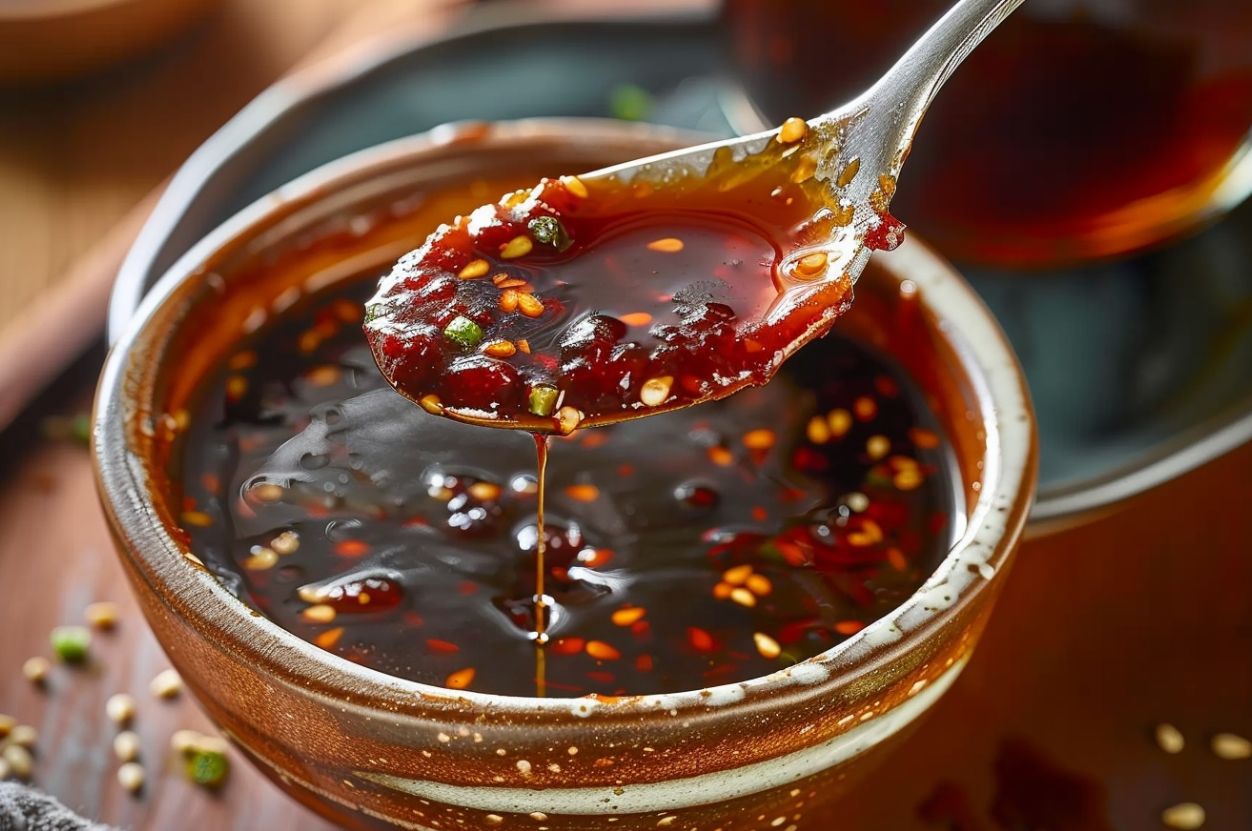
Maintenance Tips
Storage
Proper storage is key to maintaining the freshness of your Korean BBQ sauce recipe. Ensure the sauce has cooled entirely before you move it to a sealed, airtight container. Portion out the sauce into smaller quantities and secure them in containers or zip-top bags designed for freezer storage. This method ensures that the flavors remain vibrant and the texture stays consistent.
Reheating
When you’re ready to use your Korean BBQ sauce recipe again, gentle reheating is essential to preserve its flavor and consistency. To use the sauce, transfer the needed amount to a small saucepan and warm it on low heat, stirring from time to time. Avoid boiling the sauce, as this can alter its taste and texture. Should the sauce become too thick in the refrigerator, add a bit of water or broth to regain the preferred consistency.
Preservation
If you want to keep your Korean BBQ sauce recipe for a longer period, freezing is an excellent option. Split the sauce into smaller servings and store them in containers or zip-top bags that are safe for freezing. Lay the bags flat in the freezer to maximize space and ensure they freeze uniformly. When it’s time to use the sauce, defrost it in the fridge overnight and then carefully reheat it as earlier mentioned.
By following these maintenance tips, you can always have a batch of Korean BBQ sauce ready to enhance your meals. Whether stored in the fridge for immediate use or frozen for later, keeping your sauce in top condition ensures your dishes remain flavorful and enjoyable. Embrace these simple yet effective methods to keep your sauce at its best, allowing you to enjoy the authentic taste of Korean cuisine anytime.
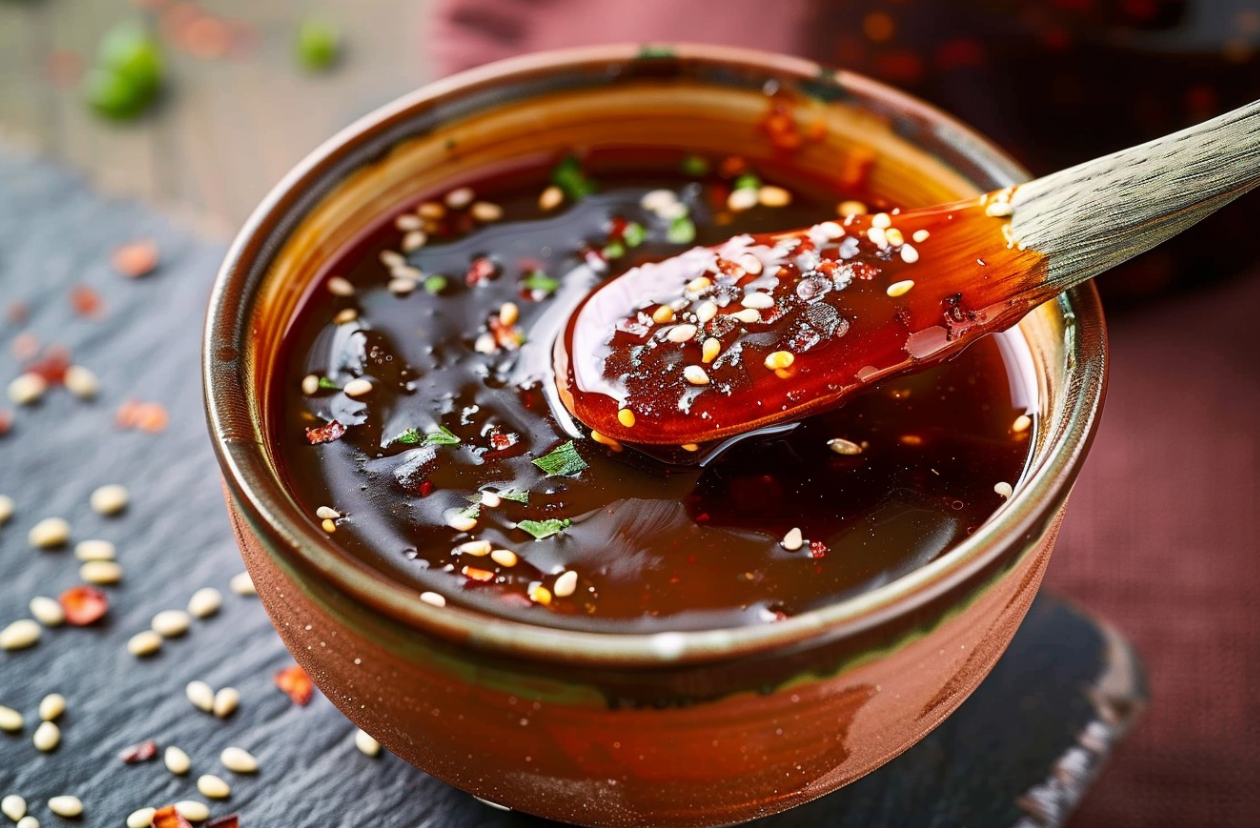
Dietary Adaptations
Gluten-Free Adaptation
For those following a gluten-free diet, you can easily adapt the Korean BBQ sauce recipe. Swap out standard soy sauce for a gluten-free option like tamari. This simple switch maintains the savory flavor without compromising dietary needs. Additionally, verify that all other components like rice wine vinegar and chile-garlic sauce are also gluten-free to prevent cross-contamination.
Low-Sodium Version
Creating a low-sodium Korean BBQ sauce recipe is straightforward. Opt for low-sodium soy sauce as the primary ingredient to substantially decrease the overall salt content. Enhance the sauce’s flavor profile by incorporating extra fresh garlic and ginger. Balancing the reduced salt with these aromatic ingredients ensures the sauce remains tasty without the extra sodium. Fine-tune the sweetness by adding a bit more brown sugar to achieve a balanced taste.
Vegan/Vegetarian Adaptations
To make the Korean BBQ sauce suitable for vegan or vegetarian diets, verify that all ingredients are plant-based. Most of the core ingredients are naturally vegan, but be cautious with processed items like chile-garlic sauce. Some brands may contain animal-derived additives. Opt for a certified vegan brand to ensure compliance. Additionally, using organic or non-GMO ingredients can further align with ethical dietary preferences.
Adapting the Korean BBQ sauce to fit various dietary needs does not mean sacrificing flavor. Whether you need gluten-free, low-sodium, or vegan options, these simple modifications ensure everyone can enjoy this delicious sauce. By thoughtfully selecting and substituting ingredients, you can create a versatile sauce that caters to all dietary preferences while maintaining its authentic taste.
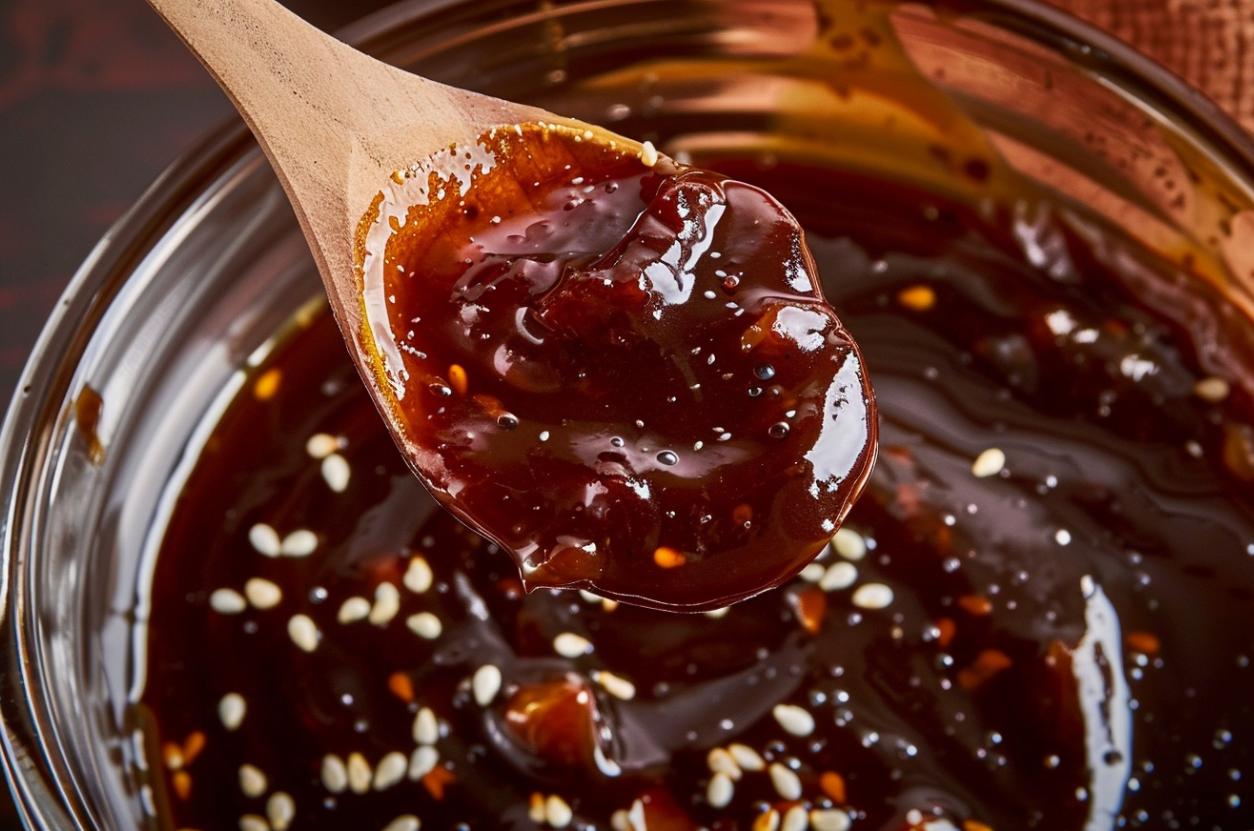
Frequently Asked Questions (FAQs)
Common Questions
What can I substitute for soy sauce in Korean BBQ sauce?
If you need a soy-free option, coconut aminos make a great substitute. They provide a similar umami flavor with less sodium. For a gluten-free alternative, use tamari instead of regular soy sauce.
How long should I marinate the meat?
For the most flavorful outcome, marinate the beef for a minimum of four hours, or ideally, let it sit overnight. Chicken and pork benefit from 2 to 4 hours of marination. Always marinate in the refrigerator to ensure safety and maximum flavor absorption.
Troubleshooting
Why is my Korean BBQ sauce too salty?
If your Korean BBQ sauce turns out too salty, add a bit of water or unsalted broth to dilute it. Alternatively, you can balance the saltiness with a touch more sugar or honey. Introduce these modifications slowly and taste frequently to ensure balance.
What can be done if a sauce turns out too thick?
To fix a sauce that has become too thick, slowly stir in small amounts of water, broth, or even apple juice until you reach the desired consistency. Heat gently while stirring to ensure the liquid integrates well.
Why is my sauce not flavorful enough?
If your Korean BBQ sauce lacks flavor, check if the ingredients are fresh, especially the garlic and ginger. Adding a splash of rice wine vinegar or a bit more soy sauce can also enhance the taste. Letting the sauce simmer a bit longer can deepen the flavors.
These FAQs address common issues and provide practical solutions to enhance your Korean BBQ sauce. By following these tips, you can ensure that your sauce turns out perfectly every time, adding a burst of authentic flavor to your dishes.
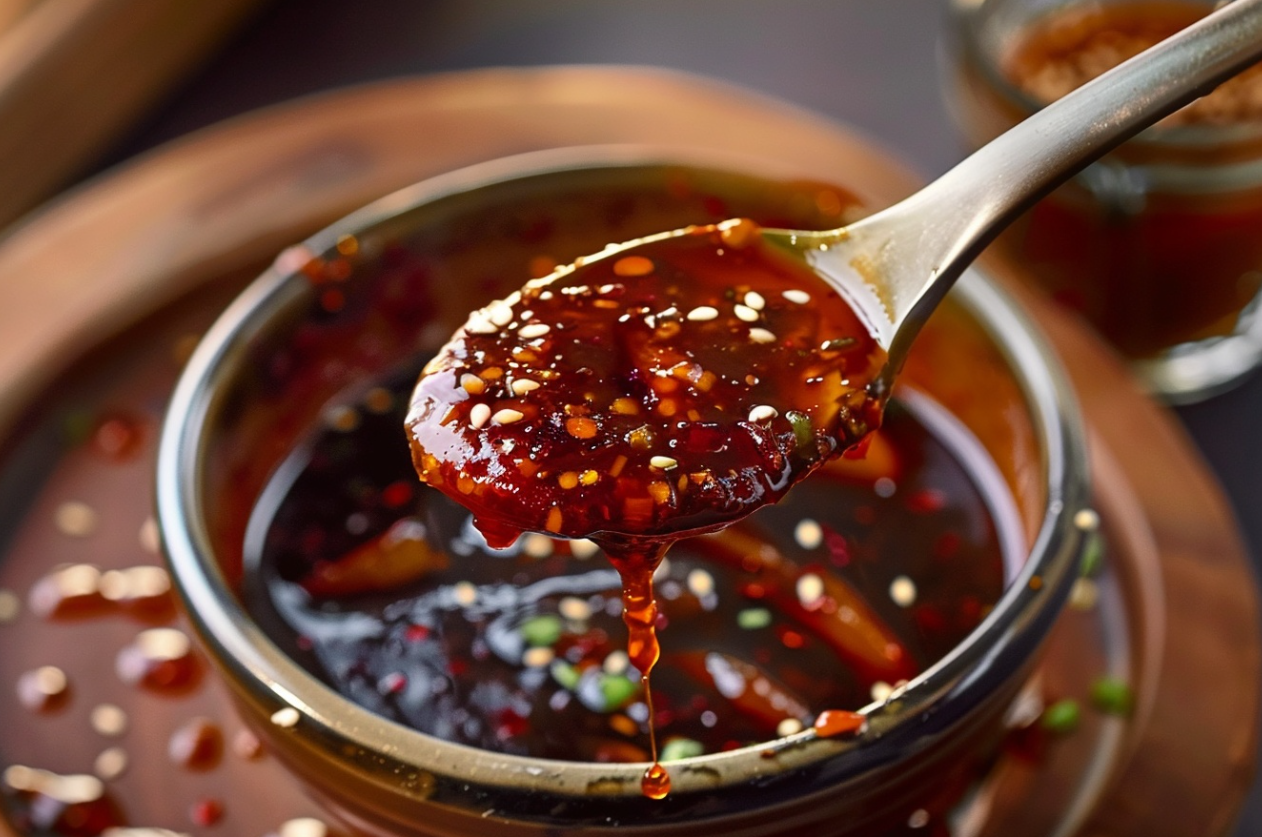
Conclusion and Additional Resources
Summary
In conclusion, the Korean BBQ sauce recipe offers a dynamic and tasty enhancement to any culinary repertoire. From its rich history to the simplicity of the basic recipe, mastering this sauce opens a world of culinary possibilities. With advanced techniques and thoughtful adaptations, anyone can tailor the sauce to their preferences, ensuring it meets dietary needs without sacrificing taste.
Encouragement
Don’t be afraid to experiment with your Korean BBQ sauce. Adjust the sweetness, spice, or umami to suit your taste buds. The charm of a homemade sauce is its adaptability and the pleasure found in achieving the ideal flavor harmony. Regardless of your cooking experience, from beginner to expert, this sauce will take your meals to the next level.
Additional Resources
For those eager to dive deeper into Korean cuisine, there are many resources available to expand your knowledge and skills. Exploring different recipes and cooking methods can enhance your appreciation for the rich flavors and techniques that make Korean food so unique.
Call to Action
We encourage you to share your experiences and variations of Korean BBQ sauce in the comments section below. Your feedback and creativity inspire others and help build a community of food enthusiasts. Connect with us on social media to discover more recipes, gain cooking insights, and stay informed about the latest trends in cuisine.
In conclusion, mastering Korean BBQ sauce not only brings authentic flavors to your table but also enriches your cooking repertoire. Dive into the process, relish the experience, and delight in the flavorful outcomes.
